Compensation For a Brain Injury in Ontario, Canada
How Much Compensation Do You Get For a Brain Injury in Ontario, Canada
Have you been dealing with a traumatic brain injury (TBI) in Ontario? Are you looking for ways to secure financial settlements? If so, then you’ve come to the right place. This comprehensive guide will provide you with all the information you need to understand the process of getting a financial settlement for your TBI in Ontario.
We’ll cover everything from the types of settlements available to you to the steps you need to take to file a claim. So, read on to learn more and get the financial compensation you deserve.
Moreover, this webpage will outline key aspects of the TBI compensation processes so that readers know their rights and options if they have suffered a brain injury due to another’s negligence in Ontario.
- How Much Compensation Do You Get For a Brain Injury in Ontario
- Types of Compensation Available For a Brain Injury in Ontario
- Determining The Amount of Compensation For a Brain Injury in Ontario
- Legal Process for Brain Injury Claims in Ontario
- What is the Maximum Compensation Available for a Brain Injury in Ontario
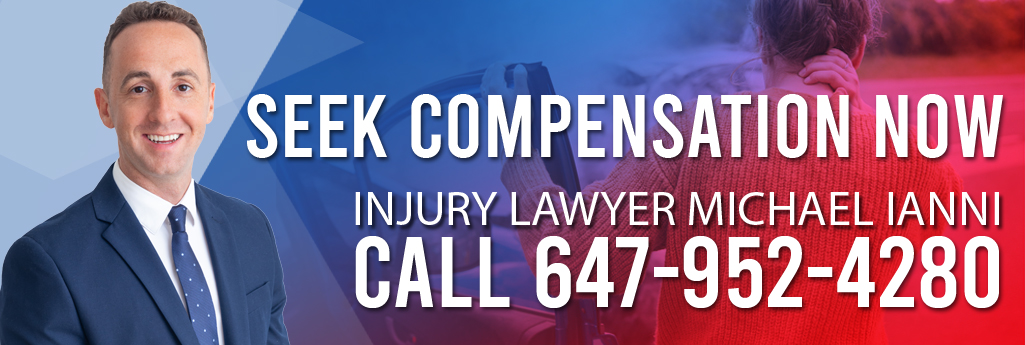
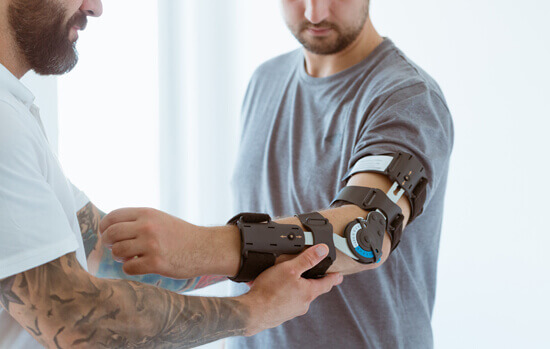
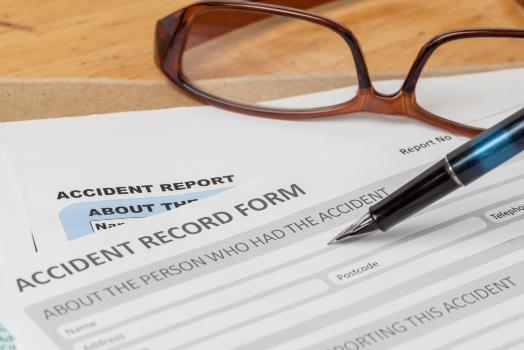
How Much Compensation Do You Get For a Brain Injury in Ontario, Canada
Answering the Question: How Much Compensation Do You Get For a Brain Injury in Ontario, Canada
Brain injuries are severe medical conditions that can have a severely negative impact on a person’s life. Whether it’s a traumatic brain injury (TBI) or an acquired brain injury (ABI), the effects of a brain injury can be devastating.
Thankfully, there is a compensation system in place in Ontario, Canada, that offers financial relief for victims of brain injuries. This system is designed to provide financial support to those affected by a brain injury and help them to cover the costs associated with their treatment, rehabilitation and recovery.
So, how much compensation can you get for a brain injury in Ontario? The answer depends on the brain injury’s severity, the accident or incident that caused the injury, and the individual’s circumstances.
In Ontario, the compensation amount you can receive is laid out in the Statutory Accident Benefits Schedule (SABS). The SABS outlines the amount of money that can be awarded to people who suffer a brain injury due to an automobile accident in Ontario.
The SABS outlines the amount of money available for medical and rehabilitation costs, as well as income replacement and survivor benefits and death and funeral benefits. Depending on the harshness of the brain injury, the compensation you can receive can range from $3,500 to $2 million.
For example, suppose you suffer a minor brain injury, such as a mild concussion. In that case, you may be eligible for up to $3,500 in compensation for medical and rehabilitation costs in Ontario. However, suppose you suffer a serious brain injury, such as a brain bleed. In that case, you may be eligible for up to $2 million in compensation for medical and rehabilitation costs, income replacement benefits and survivor benefits.
It’s important to note that the amount of compensation you can receive for a brain injury in Ontario may be reduced if you were partially at fault for the accident. Additionally, you may be eligible for additional compensation if your injury was caused by another party’s carelessness.
Suppose you or someone you love has suffered a brain injury in Ontario. In that case, it’s important to understand the options available to you and to seek the help of a qualified brain injury lawyer. a competent brain injury lawyer can help you to understand the procedure of filing a claim for compensation, the amount of compensation you may be eligible for, and the best way to proceed with your case.
Understanding the compensation system for brain injury victims in Ontario is important. It helps you achieve a successful case outcome and get the financial support you need to cover your medical and rehabilitation costs. Suppose you or someone you know has suffered a brain injury. In that case, we encourage you to speak with our recommended qualified brain injury lawyer today.
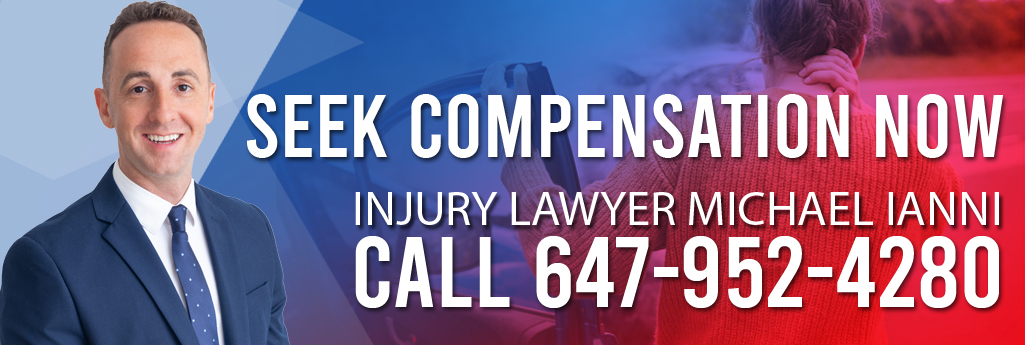


Types of Compensation for a Brain Injury in Ontario, Canada
Different Types of Compensation Available For a Brain Injury in Ontario, Canada
Brain injury is a serious and life-altering condition that can devastate the injured person and their family. Financial compensation is available to those affected by a brain injury in Ontario. It is important to know what types of settlements may be available.
First, let’s discuss financial support. In Ontario, the Ontario Ministry of Health and Long-Term Care (MOHLTC) offers financial assistance to those who have suffered a brain injury. This type of financial assistance may include home and vehicle modifications, medical equipment, home care, and other necessary expenses. MOHLTC also provides long-term care services for people who have suffered a traumatic brain injury, such as case management, vocational rehabilitation services, and access to community support.
When a person suffers a brain injury, many potential areas of compensation are available to them. These include financial assistance for medical and rehabilitation expenses, assistance with lost wages, and compensation for pain and suffering. In addition, assistance may be available for caregivers and family members whose lives have been impacted by the injury.
- Medical Expenses
Medical expenses can be significant for someone recovering from a brain injury. The Ontario Injury Support Program (OISP) provides financial assistance to help cover the costs of medical care and rehabilitation services. This includes hospital and medical bills, prescription medications, and specialized equipment. In some cases, the OISP may also cover the costs of home modifications necessary for the injured person’s recovery. - Lost Wages
Brain injuries can significantly impact a person’s ability to work and earn a living. The Ontario Disability Support Program (ODSP) provides income support to people who cannot work due to a disability, including a brain injury. This includes a monthly benefit and assistance with medical and prescription drug expenses. - Pain and Suffering
When a person suffers a brain injury, they may be entitled to compensation for pain and suffering. This is referred to as a “non-pecuniary” loss and can be awarded in addition to the other types of compensation mentioned above. The amount of compensation for pain and suffering is determined on a case-by-case basis. It can vary widely depending on the severity of the injury and the impact it has had on the injured person’s life. - Caregiver Assistance
When a person suffers a brain injury, it can have a major impact on their family and loved ones. The Family Caregiver Assistance Program (FCAP) provides financial assistance to family members who have taken on a caregiving role for a person who has suffered a brain injury. This includes assistance with lost wages, medical and rehabilitation expenses, and other expenses related to caring for the injured person.
Those with a brain injury who cannot work may also be eligible for Canada Pension Plan Disability Benefits (CPP-D). This program provides financial assistance to individuals who cannot work due to a disability, including those with a brain injury. To be eligible, the individual must have contributed to the Canada Pension Plan for at least four of the six years before the disability onset.
Individuals who have suffered a brain injury due to another person’s negligence may be eligible for compensation under the law of tort. This compensation is designed to compensate for pain and suffering, medical expenses, lost wages, and more. To be eligible for this compensation, the individual must prove that the other person was responsible for the injury, either through their own negligence or through the negligence of another party.
Finally, those who have suffered a brain injury may be eligible for compensation under the Criminal Injuries Compensation Board (CICB). This program provides compensation to victims of crime in Ontario who were injured physically or mentally. This compensation covers medical expenses, lost wages, pain and suffering. To be eligible, the individual must prove that they were the victim of a crime and suffered a brain injury.
Brain injuries can be devastating, but financial assistance is available to those affected. Understanding the types of compensation available can help ensure those affected by a brain injury can access the support they need to move forward.
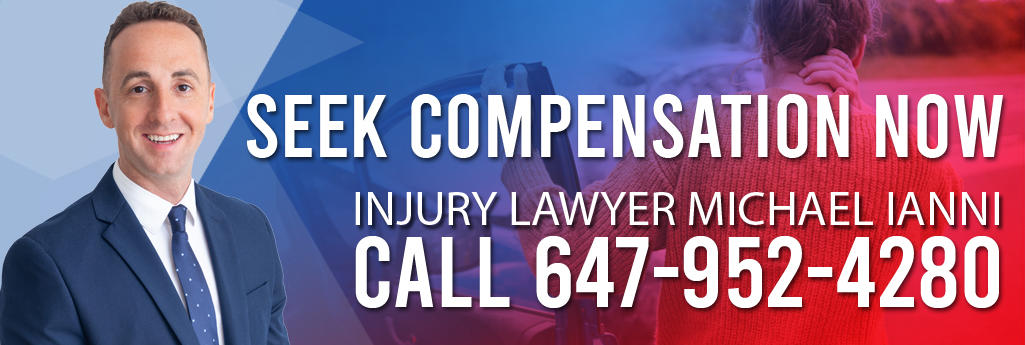

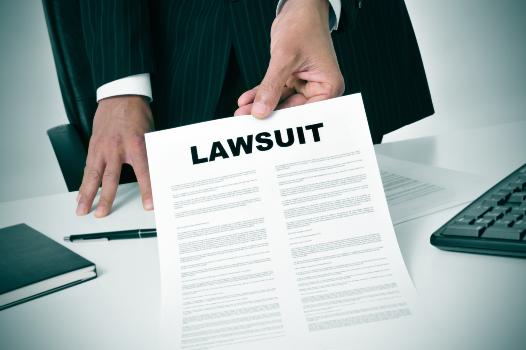
Determining The Amount of Compensation For a Brain Injury in Ontario, Canada
How to Determine The Amount of Compensation For a Brain Injury in Ontario, Canada
When determining the amount of compensation in Ontario, some key considerations must be considered. It’s important to understand the legal framework governing compensation in the province and know how to correctly assess the injured person’s circumstances to ensure a fair settlement.
First and foremost, the amount of compensation an injured victim is entitled to in Ontario is determined by the type of injury they suffered. Generally speaking, the more serious the damage, the more compensation the injured victim is entitled to. This is because more serious injuries often require more extensive medical treatment, which can be costly. Additionally, serious injuries can cause lost wages if the injured victim cannot work for an extended period.
In addition to the injury’s severity, other factors can influence the amount of compensation. The person was partially responsible for their own injuries (if so, it may reduce their total compensation), any contributory negligence on behalf of a third party (which could increase total compensation) and even the age and experience of the person making a claim.
In Ontario, the Workplace Safety and Insurance Board (WSIB) is responsible for determining the amount of compensation and providing these benefits to injured workers.
WSIB uses a system of compensation known as the “no-fault system,” which means that regardless of who is at fault for an injury, the injured worker will always be entitled to compensation. This system ensures that all workers in Ontario, regardless of their employer or type of job, are protected by the same workplace safety laws.
When determining the compensation amount an injured worker is entitled to, WSIB considers various factors, including the severity of the injury, the duration of time the injured worker has been off work, and the amount of wages lost due to the injury. It is important to note that the WSIB also considers the cost of any medical treatment or rehabilitation that may be required.
The WSIB also uses a series of steps to determine the compensation amount an injured worker is entitled to. The first step is to determine whether the injured worker is entitled to a benefit called the Loss of Earnings Benefits based on the wages the worker has lost due to the injury. Suppose the worker is eligible for this benefit. In that case, they will receive a percentage of their weekly wage up to a certain amount.
The next step is to determine whether the injured worker is entitled to a benefit called the Medical Treatment Benefit, which covers the cost of any medical treatments or rehabilitation that may be required. This benefit is based on the injury’s severity and the time the worker has been off work.
It is important to note that the WSIB also considers any pre-existing medical conditions or disabilities the worker may have. In some cases, the WSIB may even consider the worker’s mental health when determining the amount of compensation they are entitled to.
Finally, the WSIB considers the impact of the injury on the worker’s job, such as their ability to perform their job duties and any restrictions that may be required. In some cases, the WSIB may also consider the worker’s ability to earn a living and provide for their family.
Overall, understanding the amount of compensation available for a traumatic brain injury in Ontario can be complex and confusing. While the exact amount of compensation is ultimately determined by the individual case, it’s important to remember that victims are entitled to financial and medical assistance regardless of fault or negligence.
They need to seek legal advice from an experienced personal injury lawyer To ensure that the injured person can get the maximum amount of available compensation. a qualified lawyer can help guide victims through the process, protect their rights, and help them maximize their settlement.
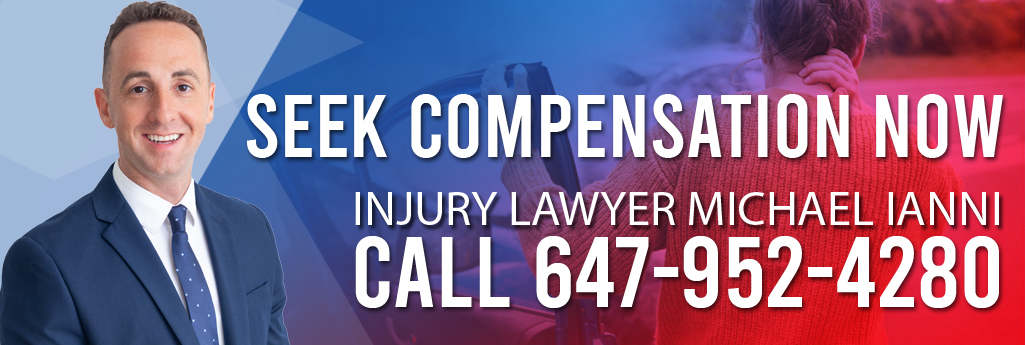


Legal Process For Brain Injury Claims in Ontario, Canada
How to Navigate the Legal Process for Brain Injury Claims in Ontario, Canada
In Ontario, the legal process for bringing a brain injury claim can be complex and lengthy. It’s important to understand the legal process and what you need to do to get the compensation you deserve.
- The first step in the process is to contact a personal injury lawyer. Your lawyer will review the facts of your case, including the event that caused the injury, and advise you on the best way to proceed. They will also explain the various types of compensation you may be entitled to receive, and they can help you file the necessary paperwork with the courts.
- The next step in the legal process is to gather evidence to prove the extent of the injury. This includes medical records, reports from doctors, and any other evidence that may be relevant to the case. This evidence is used to help establish the injury’s nature and the extent and the compensation you should receive.
- Once the evidence has been collected, the legal process for brain injury claims in Ontario involves filing a claim with the court. In some cases, the claimant may be able to negotiate a settlement with the defendant. The settlement would involve an agreement between the claimant and the defendant on the compensation the claimant should receive. In other cases, the claim may need to go to court, where a judge will hear the case and make a ruling on the claim.
- The next step is to file a statement of claim. This document will provide details about the incident that caused the injury and your medical history. Your lawyer will review it and determine whether you have a valid claim. If so, they will begin negotiating a settlement with the other party or parties involved.
After the statement of claim is filed, the other parties involved may choose to respond to it. This is known as the “discovery” phase. During this time, lawyers from both sides will exchange documents and other evidence related to the case. During this time, they may also attempt to agree on a settlement.
The case will eventually go to trial if a settlement is not reached. During the trial, both sides will present their evidence and arguments to a judge and/or jury. After the trial, the judge or jury will make a ruling, determining the amount of damages you will receive.
Brain injury claims can be complicated and time-consuming, so hiring an experienced personal injury lawyer is important to handle all aspects of the case. They can ensure that you get the compensation you need and deserve. If you’ve suffered a traumatic brain injury due to someone else’s negligence, don’t wait – contact an experienced personal injury lawyer and get the justice you deserve.
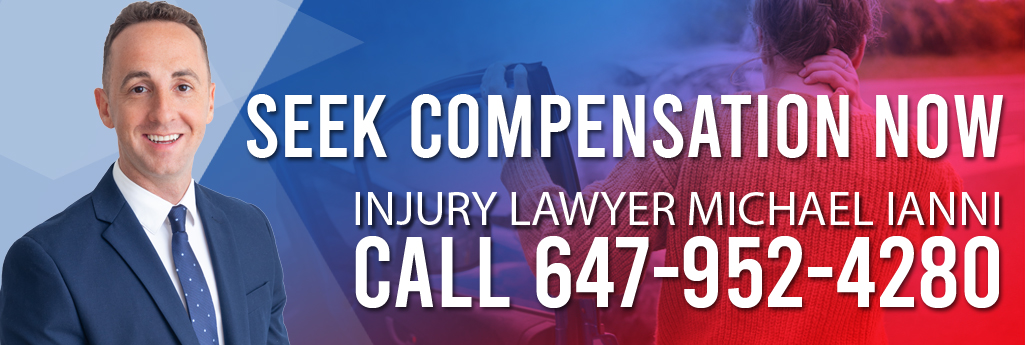


Maximum Compensation Available For a Brain Injury in Ontario, Canada
What is the Maximum Compensation Available for a Brain Injury in Ontario, Canada
In Ontario, an individual who has suffered a traumatic brain injury may be eligible to receive compensation for medical expenses and financial losses. The maximum amount of compensation available depends on various factors, including the severity of the injury and any additional costs associated with treating the injury.
The Ontario Injury Benefit is designed to provide financial support for those suffering from a traumatic brain injury. This benefit provides up to $400,000 in compensation for medical expenses and rehabilitation costs associated with the TBI. In addition, this benefit also covers any lost income due to the injury and coverage for psychological counselling sessions related to the injury.
In addition to the Ontario Injury Benefit, victims of TBI may also be able to receive compensation through legal action. Individuals may claim damages in court for pain and suffering, financial losses, and medical costs resulting from their injury. The amount of compensation available will depend on the severity of the injury and any other contributing factors determined by the court.
To be eligible for maximum compensation for a brain injury in Ontario, the injury must be caused by the negligence of another person or entity. Suppose the injury is caused by a product or service. In that case, the injured party may be able to sue the product or service provider for damages.
The maximum compensation available for a brain injury in Ontario is determined by the Ministry of Health and Long-Term Care and the Ontario Injury Prevention Plan. It’s important to note that this amount may not cover all costs associated with a brain injury. So, speaking to an experienced personal injury lawyer is important to determine the compensation appropriate for your case.
In conclusion, Ontario’s traumatic brain injury victims may be eligible to receive compensation for medical expenses, lost income, and even pain and suffering. The maximum amount of compensation available will vary depending on the severity of the injury and any other contributing factors. It is important to contact an experienced lawyer when looking to pursue a claim to ensure that you are receiving the maximum amount of compensation possible.

Injured in an Accident
, Ontario
Tel: (647) 952-4280

5 / 5 stars – based on 9 reviews
*The laws pertaining to automotive injuries are complex and are constantly evolving. The information on this website was not written by legal professionals and should not be considered legal advise. Please contact a professional personal injury lawyer serving Ontario for the most up to date and accurate information.




